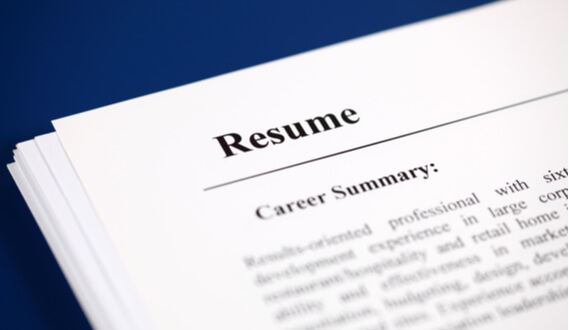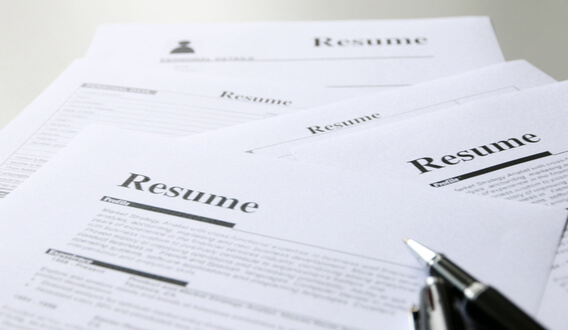Resume Tips
Resume Writing Tips to Help You Stand Out
Tips for Good Resume
The topic of resume writing is so popular that you can easily find hundreds of articles on the subject. Such a number is often confusing, and all topics seem to be a continuous mess. So how do you cut advice to a bare minimum and provide clear direction on every aspect of resume writing? Our professional resume writing service is eager to share tips for a good resume.
How exactly to write a resume?
Don’t tell everything at once. The employer does not need your entire work history. If you have changed careers frequently or worked in many positions, you must shorten your work history list. The same applies to the list of your skills. If you have something to say, it’s best to save that information for the interview.
Before you put information on your resume, consider whether this profession is related to the desired position. Was your experience long, or did it last only a short time? While having a long career path, it is unnecessary to indicate the position you have worked for only a couple of months.
Despite this, the best resume writing tips say that it is worth keeping all the information about your positions with you in the form of a draft. It is valuable information that you will need a little later. So don’t be afraid to create detailed drafts.
It is necessary to highlight your primary skills and achievements. You can immediately set the bar high and show recruiters what you deserve. That is why you should talk about your main achievement at the beginning of your resume.
Oddly enough, the short paraphrase, which is usually located right under the heading, is not always needed by candidates. Our tips for resume writing state that the text will take up a lot of space on your resume. Are you sure that you will write a professional objective section? If not, you should probably skip this part of the document to have more space for other, more important words.
A resume is best kept on one page. This format is perfect for recruiters who quickly review dozens of resumes daily. That is why carefully select the information for your resume.
In order to do that, it is best to use the story’s reverse chronological format. So you first talk about your most recent experience.
Simplicity in the presentation will be a definite plus. Use keywords that are easy to spot. It greatly facilitates the work of recruiters, and they can appreciate you.
How to format your resume the right way?
One of the tips for making a resume is to avoid large and complex sentences. Keep everything as simple as possible. Precise wording will be your friend in this matter.
How about making the text one color? Candidates sometimes change the color of the letter to highlight information. But this is a mistake. It greatly complicates the reading of the text, making the letter too bright and heterogeneous.
Don’t try to stand out when it comes to formatting. The key to a good resume is to do it “like everyone else” – as simple as possible and without various inserts. Exclude a variety of pictures, videos, and especially infographics. Most companies use ATS to select candidates, so this system may not let you through this format. However, if your position involves creativity, this way of standing out will be an advantage. However, before sending, you should still ensure that the company uses an automatic telephone exchange.
Use the bullet list to list your skills and accomplishments. Do not build complex structures, and do not fill the “skills” section with solid text.
Use a simple font, avoiding any calligraphy. You can use standard fonts like:
- Helvetica
- Arial
- Century Gothic
- Times New Roman
Make sure that the “contacts” section is conspicuous. You don’t have to include your address at home, but your phone and email (and, if possible, your LinkedIn profile) should be visible.
Save the file in several formats. However, most ATS systems get along better with the Word format, which is easier to read. Sign your file not just as “Resume,” but give your full name “Jake Williams Resume.”
How to describe your work experience?
Experience and skills should preferably be shown last. Ensure the experience is up to date and the skills haven’t lost their talent. If you’re unsure whether to include internship information, it’s best to write more about the job related to the position (if any).
If you have significant gaps in your work history, you can try to list only the years of work rather than the exact dates. However, remember that this format may cause slight suspicion among the recruiter.
To clarify the situation, you can explain the reason for such significant gaps at the very beginning of the summary.
If the experience section remains relatively empty, focus on selling your skills better! Make this section more extensive and stick to keywords.
A great resume tip is to avoid specific words and abbreviations. To show professionalism, it is better to decipher the concepts immediately. The first person to see your resume will be a recruiter, who most likely will not understand such definitions and will put your resume away.
Use action verbs to present yourself more effectively. “Done”, “completed”, “finished”. Use an impersonal way of storytelling. Don’t write “I” when starting sentences with a verb.
It is also better to indicate your results in numbers and dates. That adds credibility to your resume. You can prove your experience yourself.
If you want to describe your soft skills, it is better to transform the phrase “team player” into a specific teamwork achievement.
Don’t waste words and give the recruiter specifics that can be assessed.
How to list your education and interests?
Our tips for creating a resume are very simple. You can share your interest if you know that you will fit all the information in a convenient format (one, maximum of two pages). Don’t make them contradictory, and don’t include minor things that don’t say anything.
While writing about education, remember that work experience plays a more critical role in a resume. That is why give more space to the occasion.
Don’t list your graduation years; instead, list your education in reverse chronological order.
In addition, paying attention to other types of education is essential. Tell about them if you continue to study and take online courses. Continuity in learning indicates that your skills are still relevant.
Conclusion
Consider the advice and try not to avoid even the most seemingly petty advice. Writing a resume is one of the most critical tests on the way to getting a job. Why don’t you make yourself more confident and order the services of a professional? ResumeEdge can guide you down the path of writing a resume efficiently and professionally.








